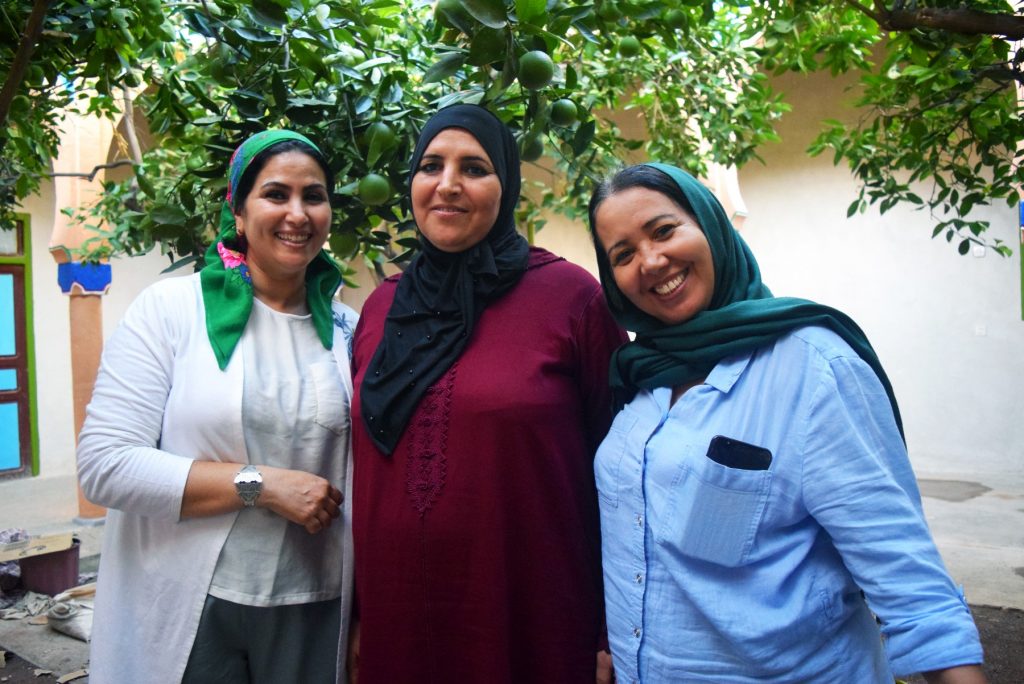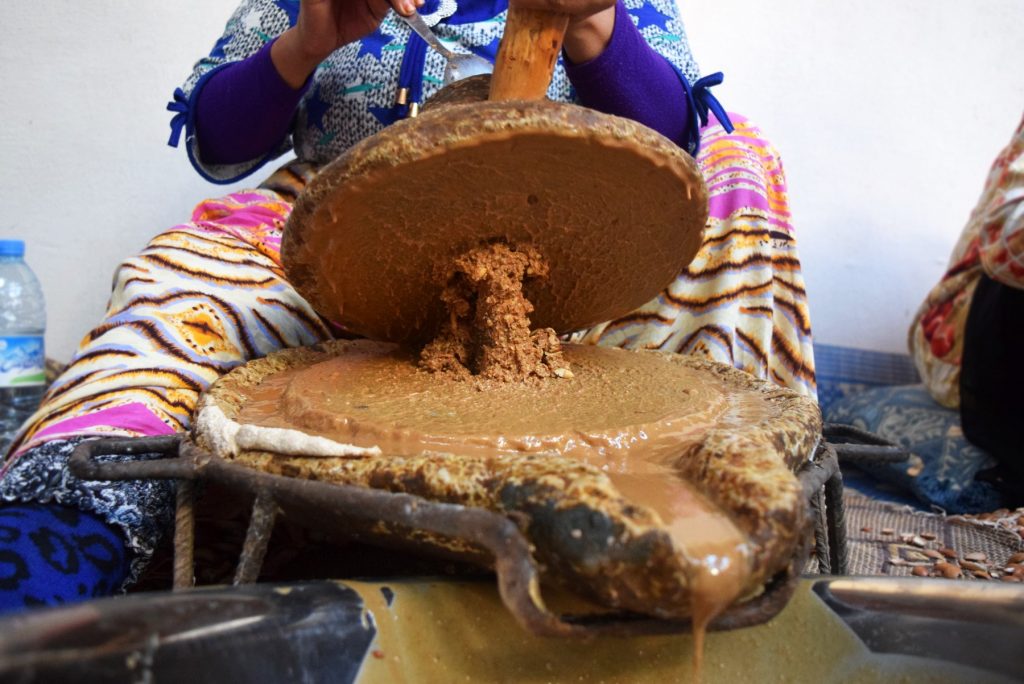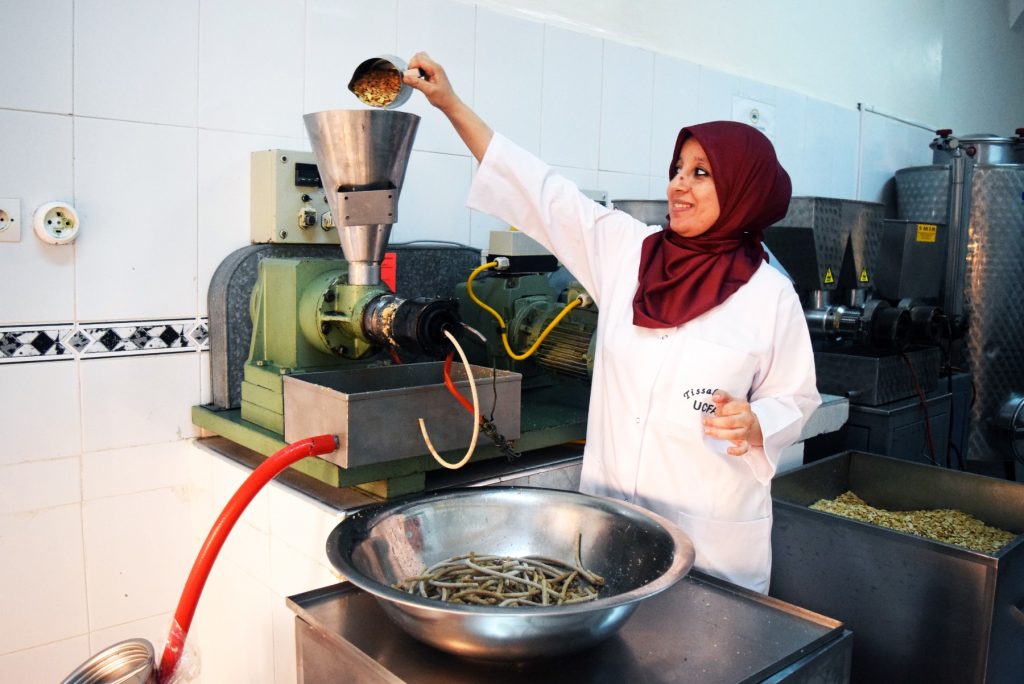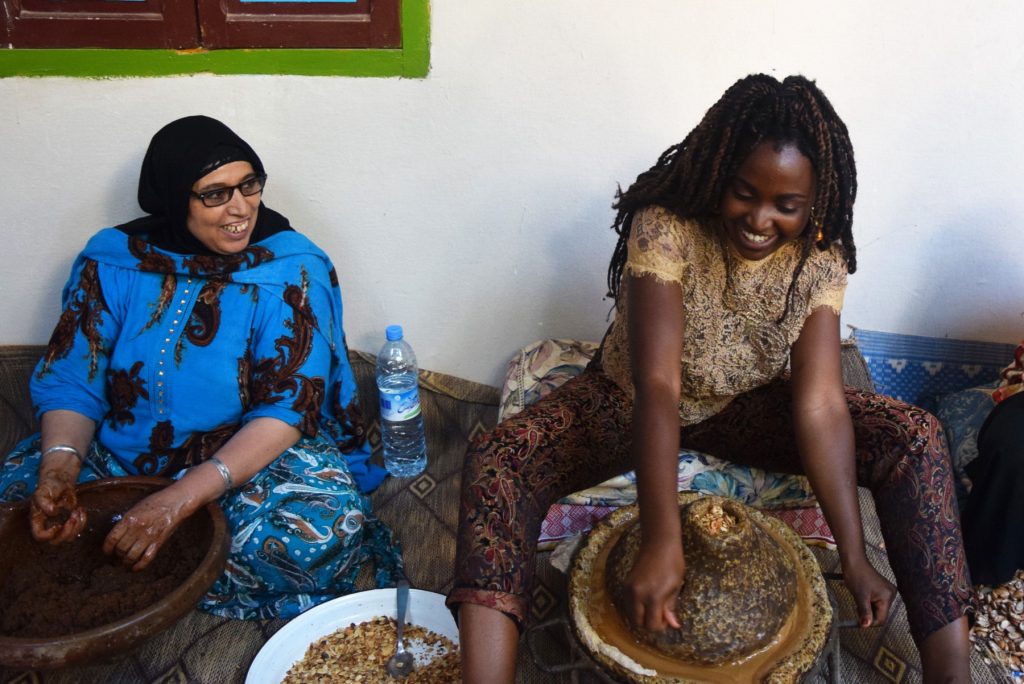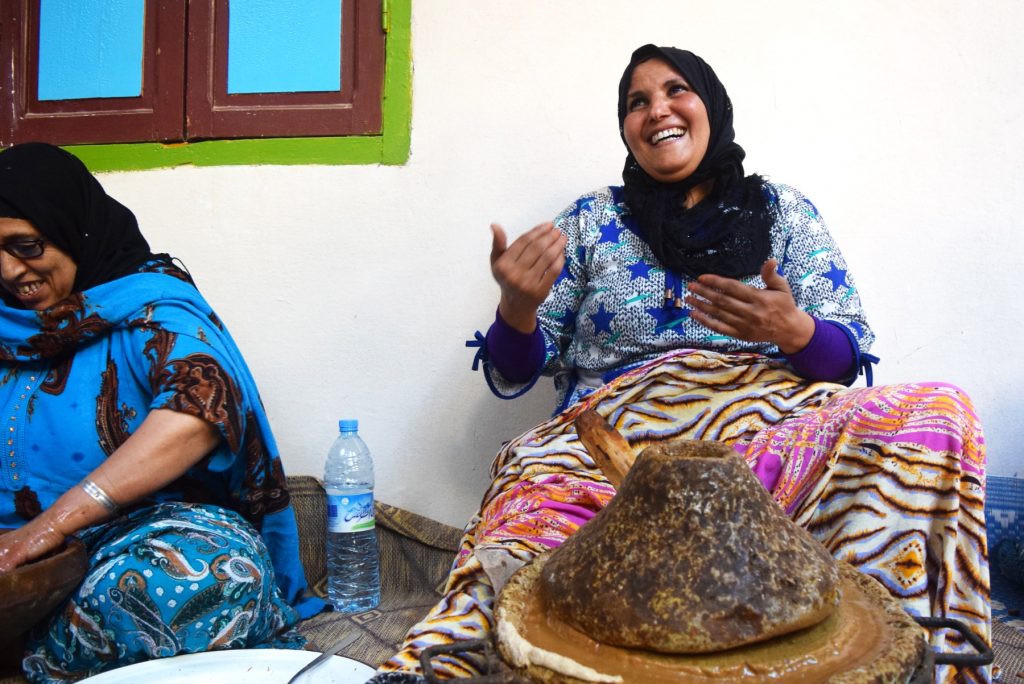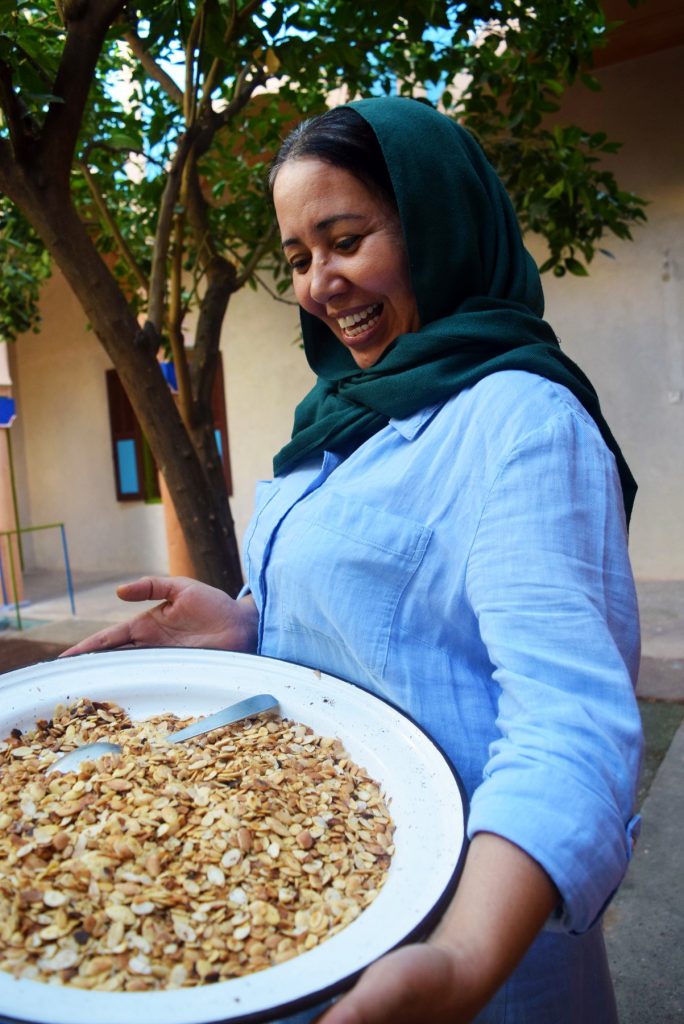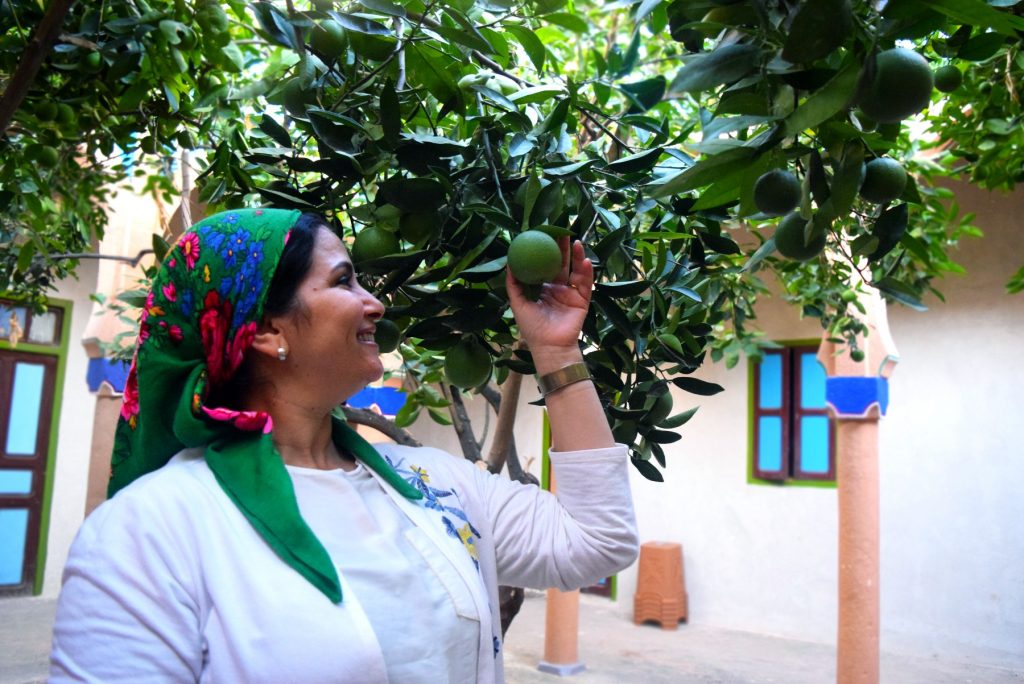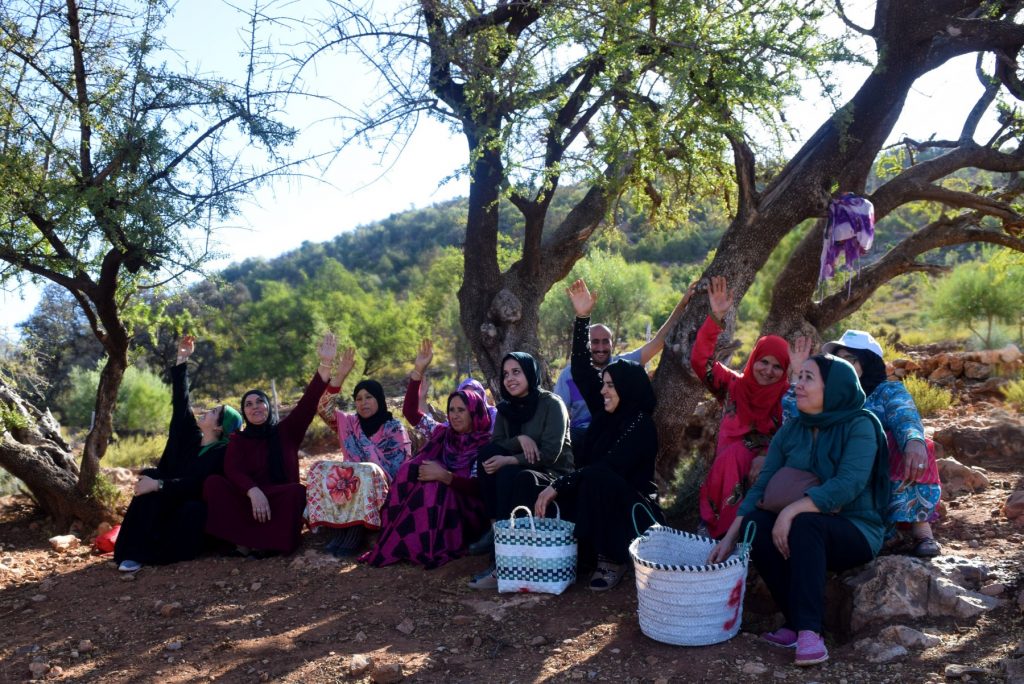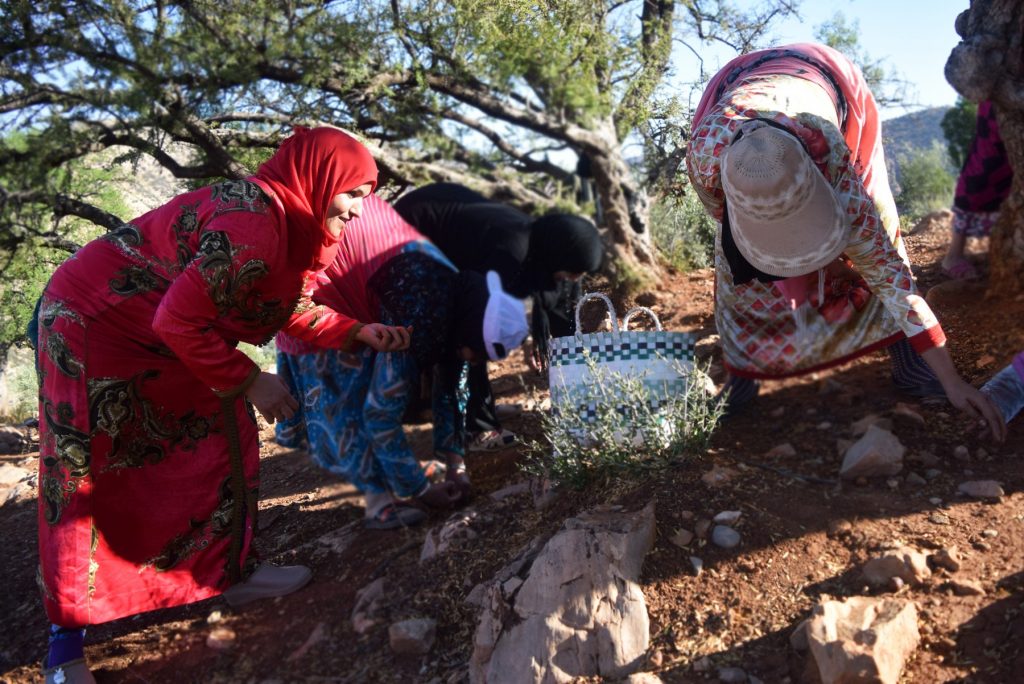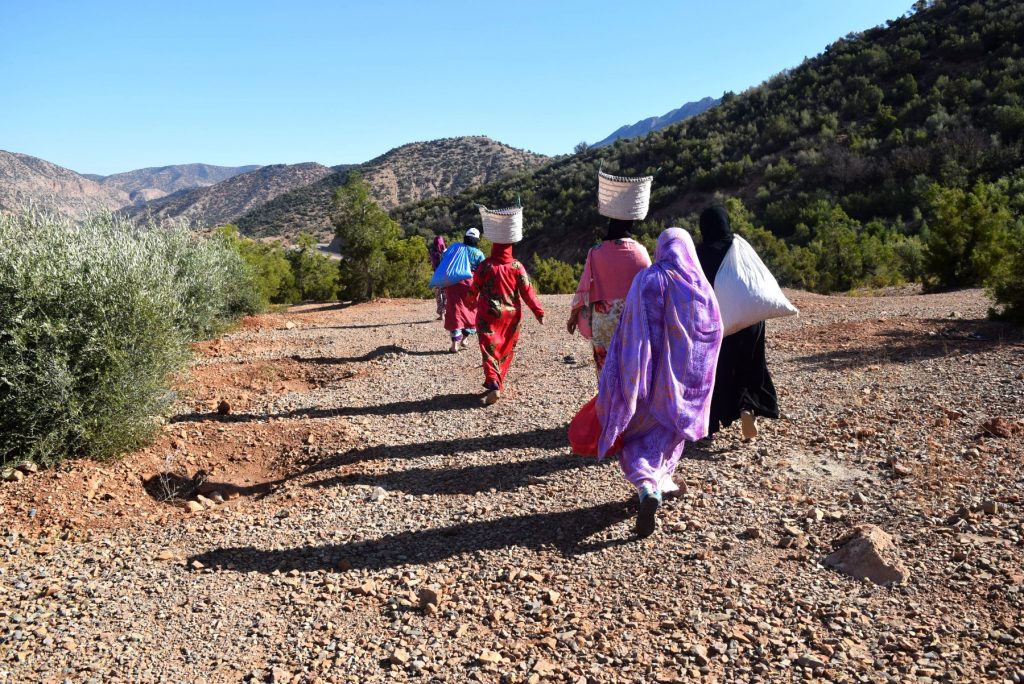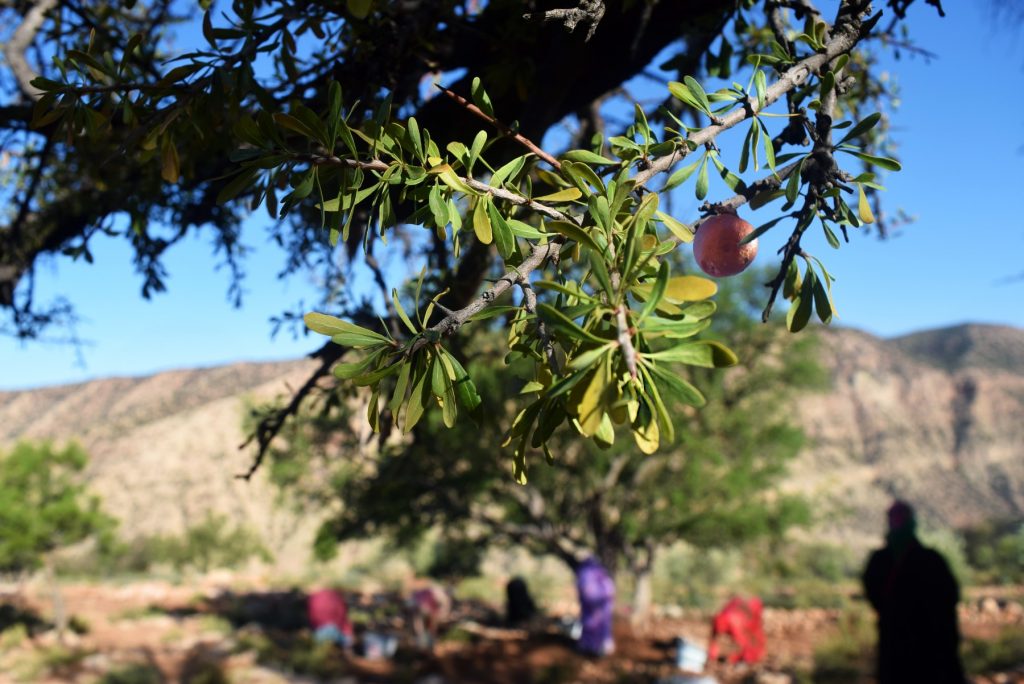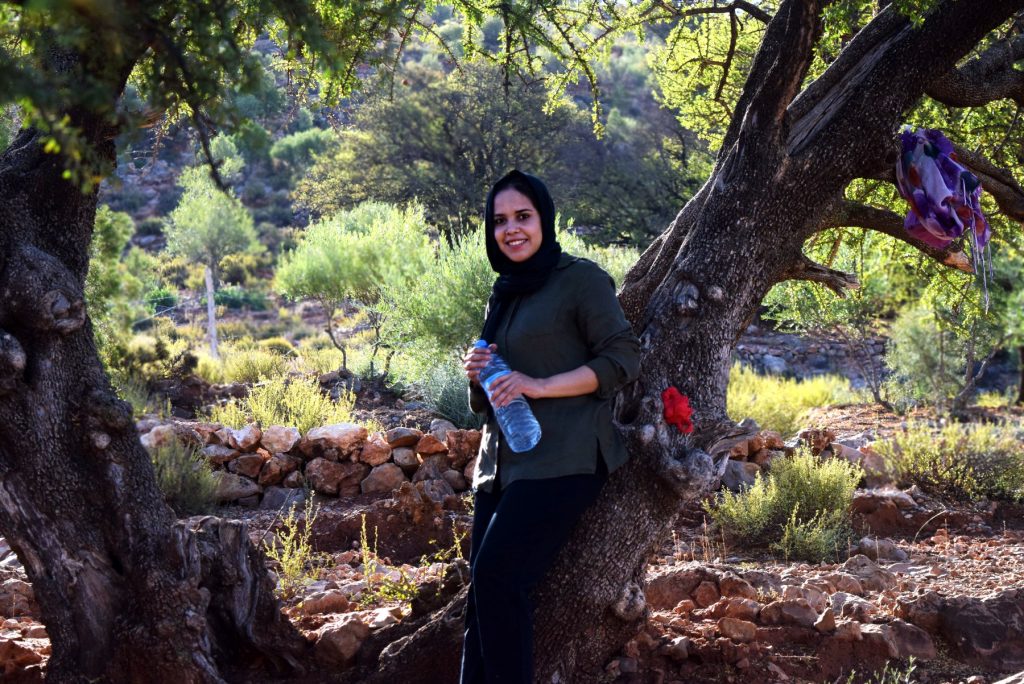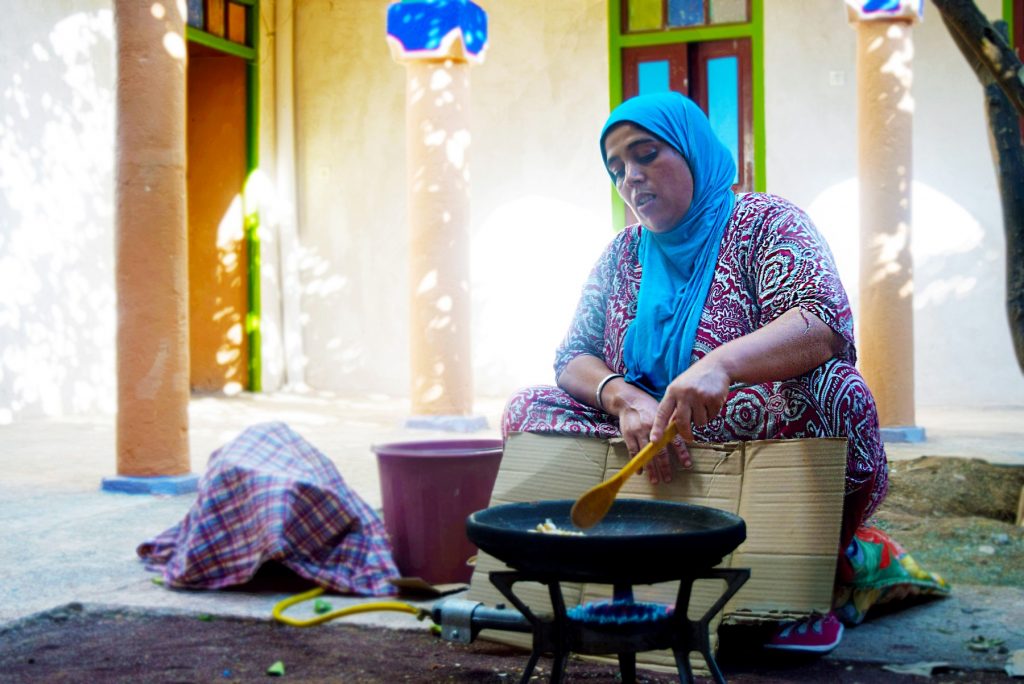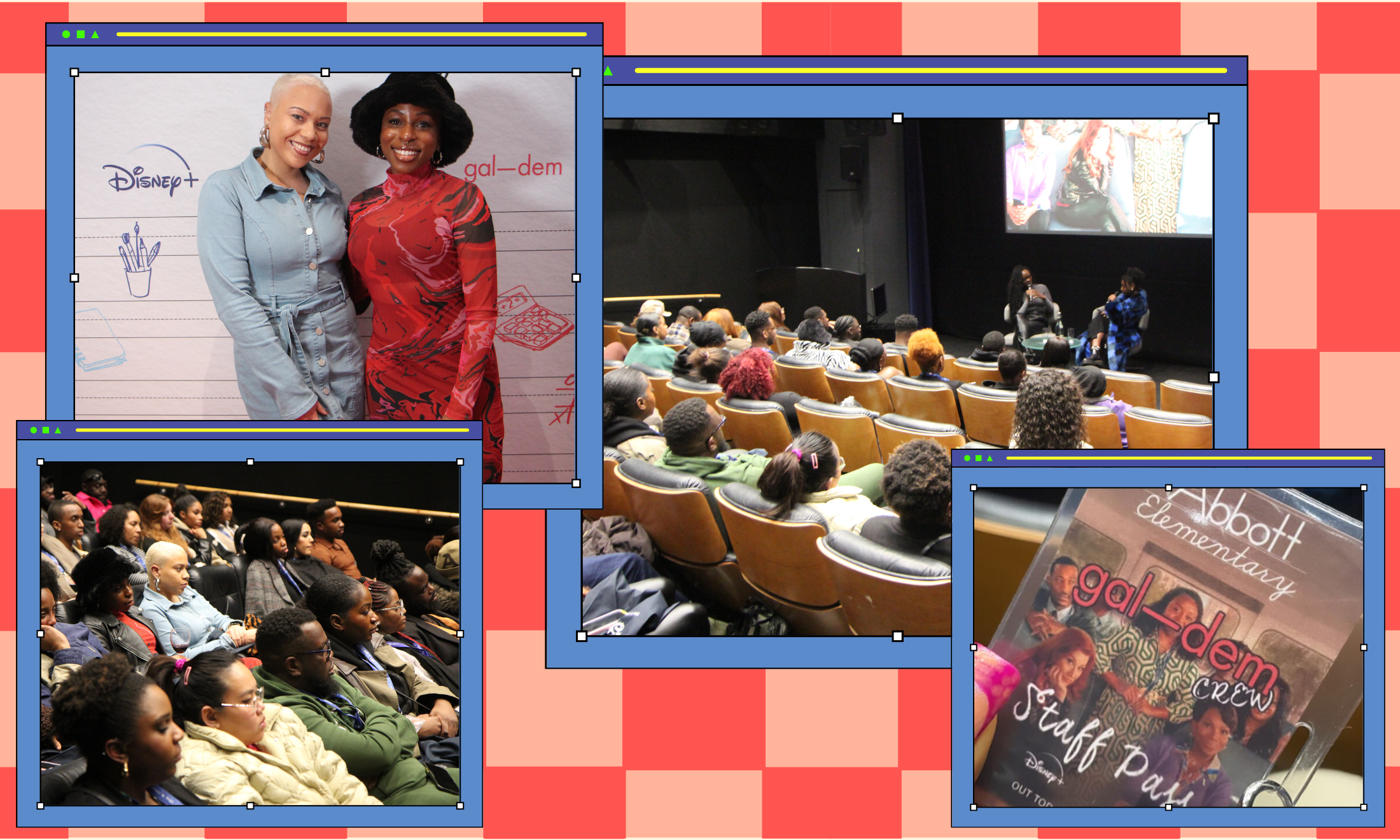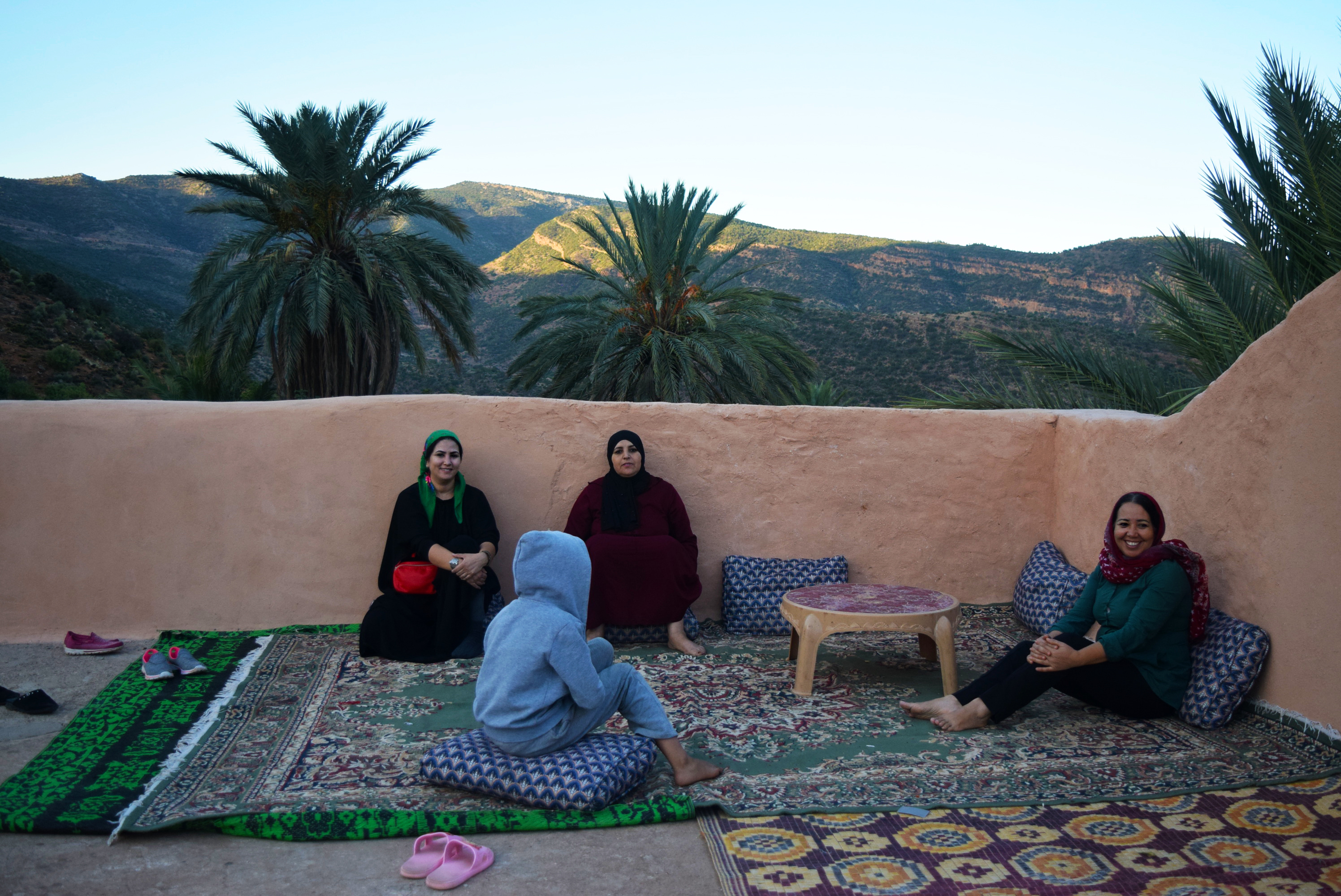
Photography by Emma Blake Morsi
In hindsight, my torrid love affair with Morocco started before I even realised. 13 years ago on a whim, my mum took my two older brothers and I for a Moroccan escape. Starting in Marrakech, we later visited our family in Rabbat, the less congested capital that oozes the amalgamated history of Morocco’s assorted cultures, amid the scorching August blaze.
Then last year, reluctant to spend another autumnal birthday in drowsy England, I did what any self-proclaimed travel addict would – I gathered an intimate group of my closest friends on a whirlwind trip of bliss to the northeastern Moroccan towns of Fez and Chefchaouen, also known as the “Blue Pearl” for its unmistakable topaz blue walls on every street of the small mountainous landscape.
Almost a year later and I’m whizzed back into the allure of north Africa, only this time with the promise of argan oil and quality time with the women who produce it for the ethical cosmetics brand LUSH.
- Left to right: Jamila Idbourrous, the Director of UCFA; Fahma Haddi (current President of UCFA); Fatima Aheri (previous president of UCFA)
- The argan kernels are pressed manually using traditional tools and techniques
- The oil is extracted, and the remaining waste is pressed out to produce an argan cake that can be reused for other products and sustainable packaging
Photography by Emma Blake Morsi
Like many experiences once leaving the Western hemisphere, the Moroccan hospitality is attentive. Not usually one for being waitered on, I can’t help but notice how the men wait on the women in the argan oil cooperative; they routinely serve us drinks and all our meals. Commenting on the difference, the women laugh and explain that this isn’t normal in most Moroccan households, but at the cooperative it’s different.
Made up of 17 cooperatives, UCFA (L’union des coopératives des femmes d’Argane) is the umbrella union they all belong to and collectively run. Each cooperative ranges in size, from 20 women artisans to the first ever coop, established in 1995, which now has 120 members.
“The women are able to make even more money than their husbands know about”
- Left to right: Fatima Marrour, the president of the Tiskjji Village Coop, and Emma pressing the argan kernels
- Right: Zahra Aqsoui, another woman who is part of the Tiskjji cooperative
Photography by Emma Blake Morsi
Traditionally, women aren’t allowed to go to the markets to sell goods, so the husbands would go with their produce and keep the money. The union was set up to increase the artisans’ independence. Fatima Marrour, the president of the Tiskjji Village Coop in the Agadir regions, Morocco, explains to me: “Before we joined the cooperative, women would collect the argan fruit like normal, as we do today, but the husband would sell it. But the difference is now, through UCFA, we sell it and make our own money.”
Argan oil is increasingly used as a key component in cosmetic products, which accounts for 40% of its use globally. To join your local cooperative in Morocco, you must also be a producer with your own argan tree – making it possible to track each millilitre of argan oil right down to the producers and their trees. Its antioxidants and anti-inflammatory properties are acclaimed for softening and healing dry skin with many long term medical benefits.
As is Moroccan tradition, the women balance UCFA work with household duties. For many, this means childcare and cooking, and for those in rural areas, this also includes taking care of livestock. But if there’s ever excess profit, it goes back to the women as a bonus – and I am told, with a glint in their eye, this way they’re able to make even more money than their husbands know about.
Apparently, many of the artisans go on to save enough money to buy a washing machine for their homes, which frees up a significant amount of their time: “My life has changed but for the better – I can organise my time better, wake up in the morning and do what I have to do. It has given me a purpose,” says the woman next to Marrour.
“What is important here is now the women really care about their daughter’s going to school”
Photography by Emma Blake Morsi
Elected every eight to ten years by the women, the previous UCFA President Fatima Amehr highlights that their organisation represents “the power of being united”. By being part of a large organisation, they can guarantee the production demands of a larger customer like LUSH who makes up 55% of their business. Jamila Idbourrous, the Director of UCFA, explains that if each cooperative works at full capacity, UCFA can produce 65 tonnes every harvest. If there is a shortage of labour for larger orders, I’m told the answer is simple – you find more women; apparently there are more cooperatives outside of UCFA who are also waiting to join.
Not only does UCFA guarantee the commercialisation of the argan products, giving the artisans more access to consumers and international markets far beyond their local souks, the women are also given the opportunity to take part in literacy and numeracy lessons. These two-year courses mainly consist of the basics, with two to three sessions per week. After this, they have professional vocational training on Argan oil production.
Ahmer expands: “What is important here is now the women really care about their daughter’s going to school. Instead of bringing another person from somewhere else, why not my girl that I’ve brought up with Argan products? They encourage their daughters or other younger members to go through the education system, finish their higher education studies and welcome them back into the cooperative if they wish to return.”
For the last six years the EU have been supporting the women in multiple ways with a bottom-up solution: they assess their needs using diagnostics then, based on their findings, work with the women to provide the support as defined by the cooperatives in a way that’s relevant and accessible for them – all for free. Three years ago, the UN’s Development Programme (UNDP) also planted 20 hectares of argan trees across Morocco.
“Their set up allows them to decide when they work, how much they work, what they get paid, and where they work”
- The women give thanks for the end of the harvest season
- The coop manually pick the argan kernels from the floor once it has fallen
- Sacks and baskets full of argan kernels are carried in the traditional head-carrying way
- As most kernels have already fallen, few remain on the Argan trees in preparation for the next harvest season
- Souhayla Bella, a freelance graphic designer for UCFA, relaxing in the hot Autumn sun
- Once collected and cracked, the argan seeds are then baked on an open gas stove
Photography by Emma Blake Morsi
Their unique set up often seems too good to be true, recalls Ahmer. “The women decide how much they work as they’ve got to balance other things. You can’t impose a timetable on them. When the Fairtrade certificate body came to assess us they asked the women, ‘when do you start and finish working?’ When they said they start from 3pm to 8pm, they [Fairtrade] said to me ‘why are you letting the women work even in the evenings?’ and I said, ‘that’s not me, it’s them! If I asked them to come in the morning, they wouldn’t come’.
“So, then I explained to them that for these women, they’ve got household duties and children to care for in the mornings. For traditional Moroccan women, balancing housework and children comes first, and for women in rural areas, they also have goats, cows, and other activities to look after the land which is more than just making bread and cooking.”
Idbourrous explains, “So, we have the opportunity in the Cooperative to share our experience with others, and we too visit others to exchange experiences – for example, Fatima [Ahmer] has travelled across France, Germany and Asia representing UCFA. This gives us the opportunity to develop. Since working with LUSH, LUSH invited us to Dorset, UK earlier this year. We’ve never had this opportunity to visit the UK before and now we participate in exhibitions globally.”
It was a breath of fresh air to meet these business women who have made their local traditions into a global business. They decide when they work, how much they work, what they get paid, and where they work, whilst also providing a steady reliable income with occasional bonuses. How many Western freelancers, let alone businesses, could even say that.
To find out more about UCFA and their work with LUSH, click here. The argan oil produced by UCFA can be found in LUSH’s new vegan Slap Sticks solid foundations and Glow Sticks solid highlighters.

